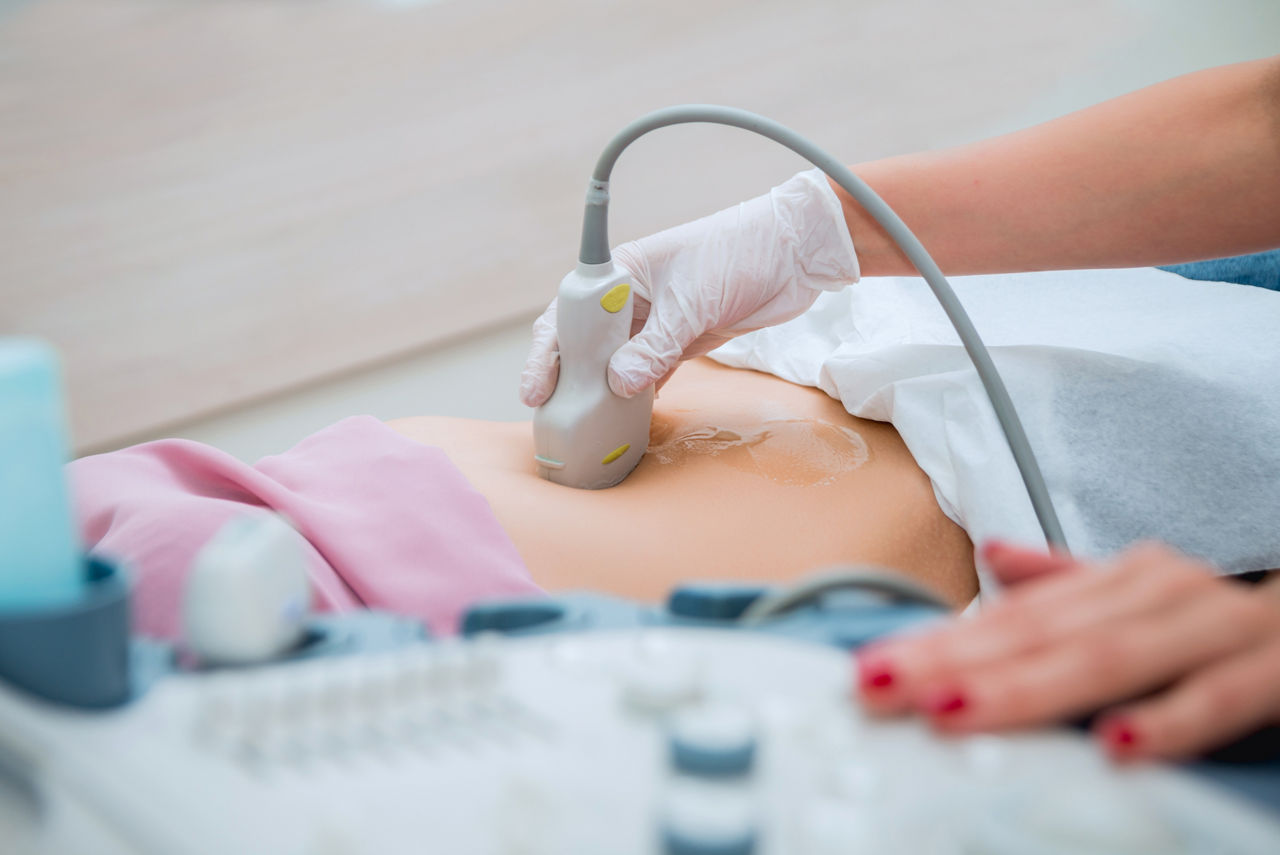Breastmilk is the best for babies. The World Health Organisation recommends exclusive breastfeeding for the first six months of life. Unnecessary introduction of bottle feeding or other food and drinks will have a negative impact on breastfeeding. After six months of age, infants should receive age-appropriate foods while breastfeeding continues for up to two years of age or beyond. Consult your doctor before deciding to use infant formula or if you have difficulty breastfeeding.
- Week 1
- Week 2
- Week 3
- Week 4
- Week 5
- Week 6
- Week 7
- Week 8
- Week 9
- Week 10
- Week 11
- Week 12
- Week 13
- Week 14
- Week 15
- Week 16
- Week 17
- Week 18
- Week 19
- Week 20
- Week 21
- Week 22
- Week 23
- Week 24
- Week 25
- Week 26
- Week 27
- Week 28
- Week 29
- Week 30
- Week 31
- Week 32
- Week 33
- Week 34
- Week 35
- Week 36
- Week 37
- Week 38
- Week 39
- Week 40
Week 8 of Your Pregnancy
Wondering when your bump will show? Well, you won’t need looser clothing till the 14th or 16th week! (Healthhub) In the meantime, your baby’s facial features will start gaining definition, though morning sickness may be at its peak. Here’s also why zinc is so vital at this point.
Your Baby
You've been filled with anticipation all week! Some of you may break the news right away, and some prefer to do it after the first scan. Whichever the case, know that your baby is no longer an embryo - it's medically termed a foetus! At the beginning of the 8th week, your baby’s heartbeat is visible on the ultrasound. In addition, even the small and deformed fingers have formed and the eyelids are grown. The nose and upper lip starts to form. All the internal organs have already been created. The embryo is now about the size of a kidney bean, at about 16 millimetres. At this point, your abby can make small little movements! But you won't be able to feel this for a few weeks yet.
Your body
Do not be surprised if your bra pinches because your body is preparing for milk production after birth. This means that the breast will increase significantly in size in the coming months. At the same time your facial features and whole body will also appear to be softer due to water retention. You should still be consuming plenty of water to keep yourself hydrated.
Feeling Queasy?
Don't let morning sickness dampen your excitement! Morning sickness affects 2 out of 3 pregnant women and can occur anytime during the day. However, it’s usually at its worst around week 8. By weeks 12 to 14, these symptoms will usually fade. Cheer up though – feeling nauseous is a good sign of a healthy baby!
Here are some home remedies to ease morning sickness4:
- Get a good night’s sleep and plenty of rest during the day
- Eat a dry cracker, toast or plain biscuit before getting out of bed
- Eat little and often to keep something in your stomach
- Drink plenty of fluids. If drinking is proving difficult, home-made fruit juice ice cubes or simply sips of whatever you can stomach will keep you hydrated
- Include ginger in your diet
- Motion sickness bands can be effective. They are worn on the wrist and positioned to press on an acupuncture point
If your nausea is severe, or if your symptoms persist, speak to your doctor early.
Stretch Marks
Have you started noticing some stretch marks? Don’t despair, because they are a result of a mother’s great love! To prevent these scars, slather stretchmark oils and cream all over your new curvaceous body, especially your hips, thighs and bum. Small and easy lifestyle changes such as watching your weight can also help!
Zinc: Supporting New Life
Your nutrition plays a huge role in the growth of your baby! A healthy, balanced diet is likely to provide all the zinc you need6. It:
- supports the body on a cellular level5
- plays a role in the division and protection of cells5
- helps allow for normal immune function and vision5
- contributes to normal cognitive development, reproduction, fertility and bone health5
Depending on your body weight, you need between 7.8 and 11.8 mg of zinc per day7. Excellent sources of zinc include:
- Zinc-fortified cereals
- Red meat
- Poultry, especially turkey
- Wholegrain bread and cereals
- Nuts
- Milk, cheese and eggs
While zinc deficiency is rare, keep a well-balanced pregnancy diet to reduce associated rsks!
1. Papaioannou GI et al. Normal ranges of embryonic length, embryonic heart rate, gestational sac diameter and yolk sac diameter at 6-10 weeks. Fetal Diagn Ther 2010;28(4):207-19.
2. Deans A. Your New Pregnancy Bible, The experts’ guide to pregnancy and early parenthood. 4th ed. London: Carroll & Brown Publishers Limited, 2013. p. 32.
3. NHS UK. You and your baby at 0-8 weeks pregnant [Online]. 2013. Available at: www.nhs.uk/conditions/pregnancy-and-baby/pages/pregnancy-weeks-4-5-6-7-8.aspx [Accessed June 2014]
4. NHS UK. Nausea and morning sickness [Online]. 2013. Available at: www.nhs.uk/conditions/pregnancy-and-baby/pages/morning-sickness-nausea.aspx [Accessed June 2014]
5. European Union. Commission Regulation (EU) No 432/2012 of 16 May 2012 establishing a list of permitted health claims made on foods, other than those referring to the reduction of disease risk and to children’s development and health Text with EEA relevance. OJ L 136 2012;1-40.
6. NHS UK. Vitamins and minerals – others [Online]. Available at: www.nhs.uk/conditions/vitamins-minerals/pages/other-vitamins-minerals.aspx#zinc [Accessed June 2014]
7. EFSA. Dietary Reference Values for zinc. 2014. Available at: https://www.efsa.europa.eu/en/efsajournal/pub/3844

Connect with our team of experts
We provide advice and support for you on your parenthood journey



